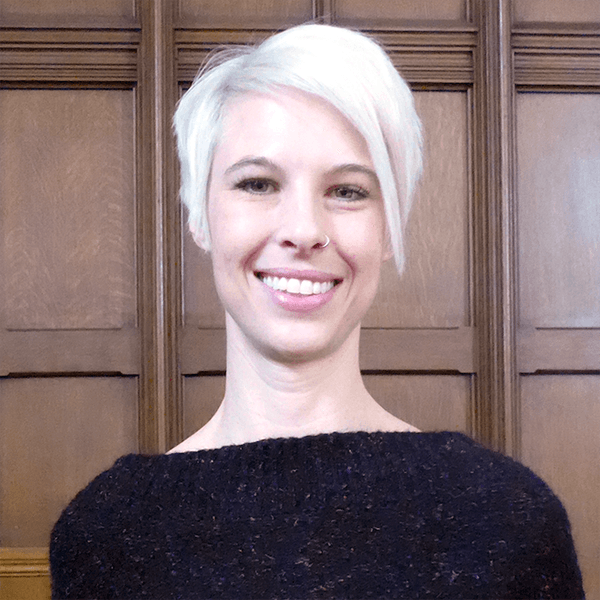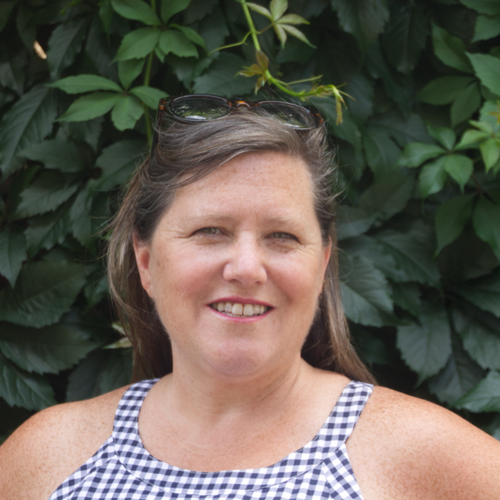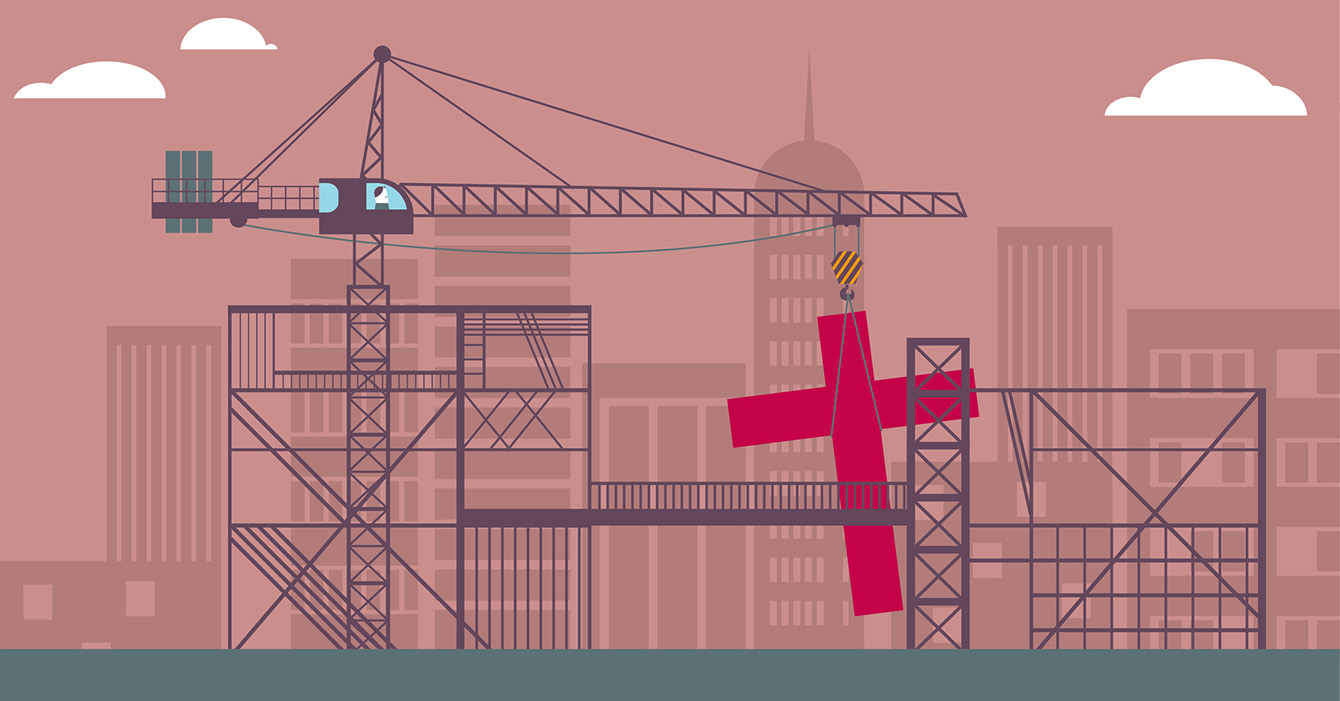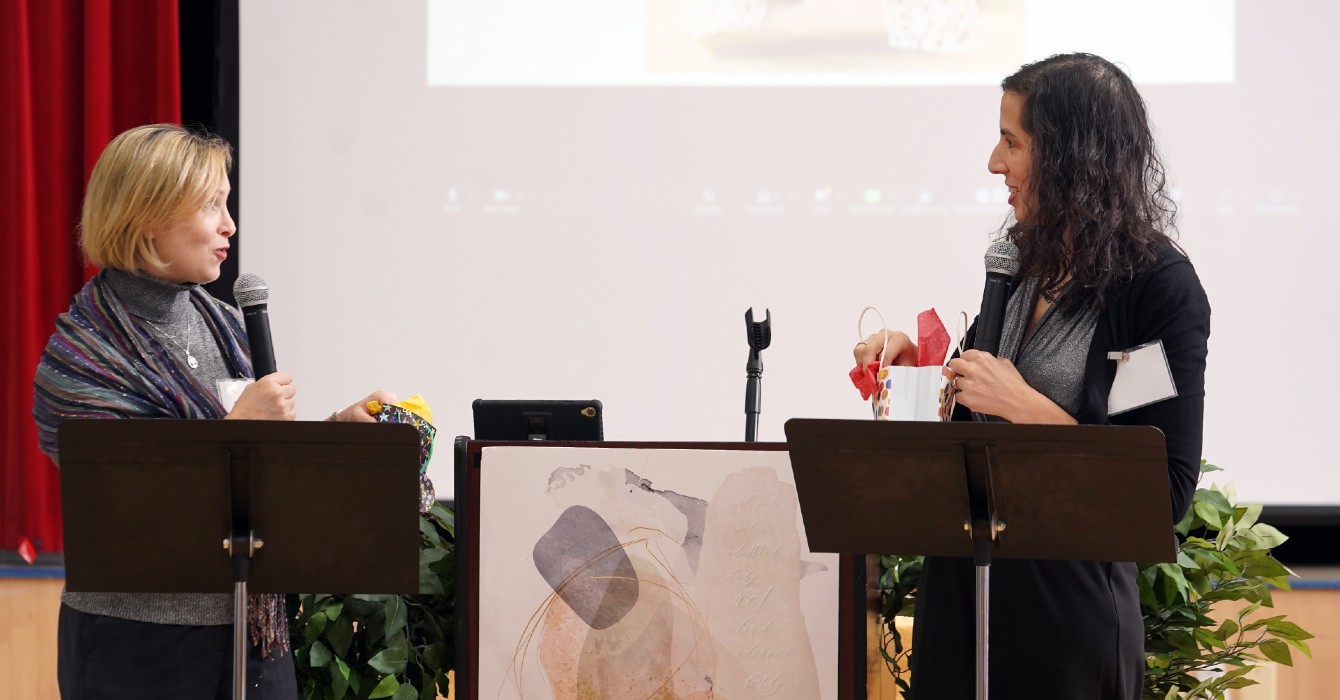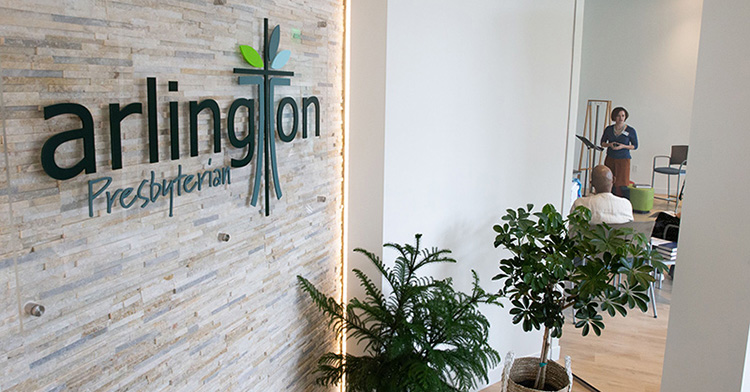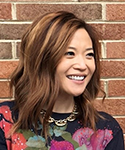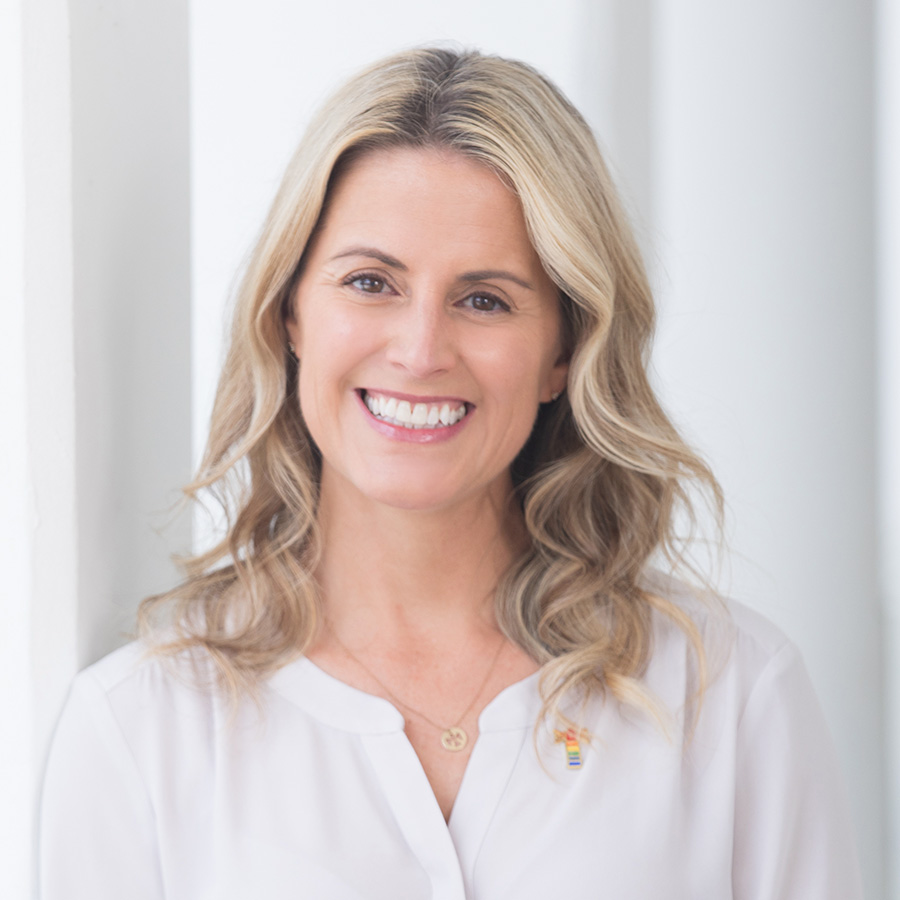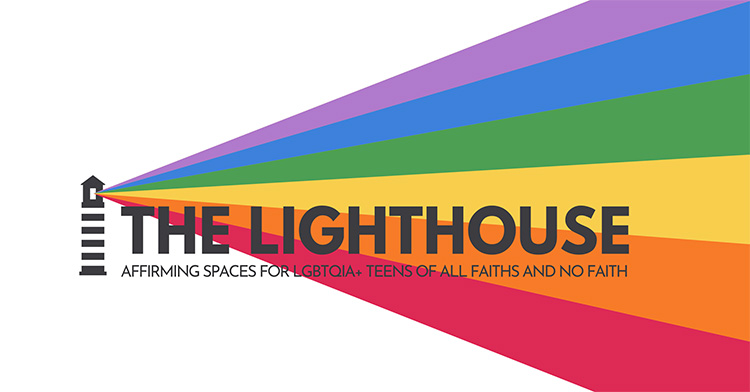For the third time in as many weeks, I opened my email today to find a message from someone questioning their faith and the validity of church. Typically, these questioners desire a religious practice that encompasses more than believing the “right” things and are not sure there’s a place for them at the table of American Christianity.
I have lost count of the emails I’ve received and conversations I’ve had during the past year with people who have found their way (virtually) to my church. These folks are largely representative of the “nones and dones” demographic; many have had prior experience with Christianity but have left the church because of bad experiences.
I’ve observed that many people in this group are drawn to a loving, spiritually connected community where they feel safe, seen and welcomed — they just aren’t sure how to find it.
In one recent conversation, for example, someone explained that it had been important for their mental, spiritual and emotional health to step back from organized religion. But after a while, they’d found themselves searching online for something with which they could authentically engage spiritually. They just weren’t sure what it would be or how it would look.
Some of these folks have found us. We have welcomed roughly two dozen new members over the last year — a significant increase from the previous year. Many were returning to a faith community after time away to heal from religious trauma.
As COVID restrictions ease, we hope that our pandemic innovations will continue to attract and retain more of these folks.
When church leaders talk about this — reaching the nones and dones — they often do so with an underlying desire to rope people back into a church community that had little to offer them in the first place.
But these folks don’t want to return to a place that emphasizes right belief over right practice, that values knowing what to believe over how to believe, that favors fitting in over pushing boundaries with Spirit-filled ideas.
What do they want? In my exchanges with those from the nones and dones demographic that have found us, they generally emphasize two things: being accepted wherever they are on their faith journeys (especially when they’re not sure they believe anything at all) and being part of a faith community that seeks to center marginalized voices.
We are living in a time when authoritarian, systemic structures of all kinds are being confronted and dismantled. The church is no exception, nor should it be.
As painful and unlikely as it was, the pandemic forced us to do things that perhaps we didn’t want to do — or otherwise wouldn’t do — but were a conduit to new ways of being church.
As I help pastor my church in this direction, we are guided by a few core principles, which I think are at the heart of who we are. These principles are now being translated into what we’re calling our online/on-site community, but they were in our DNA long before we began exploring what it means to be a hybrid congregation.
The first is that we retain our identity as a community that welcomes into full participation those who are on the margins. During the height of the pandemic in New York City, this meant getting creative with helping folks access technology.
We chose Zoom as our platform for worship because it allowed the live, vibrant interaction our community is known for, but we also made other channels available, including Facebook livestreaming and audio-only call-in access.
We had an on-call troubleshooting team on Sunday mornings to help ensure that people could connect, and a few leaders even went so far as to (safely!) set up donated devices in person for people who needed extra help.
This commitment to live, vibrant Zoom worship required extensive preparation, but it allowed us to draw many and diverse voices into worship leadership.
As we now prepare to have more people in our building, we are continuing to prioritize the experience of those who won’t be able to join us in person, to maintain and grow the connections that have developed over the past year.
At this point in our journey, each worship service includes leaders that are both on-site and online. We continue to have preachers off-site, and we encourage on-site interaction with our online attendees, who are still the majority of worshippers. Our on-site congregation is getting used to having an in-person Zoom experience!
A second guiding principle is that we empower people to discern and share their gifts.
This is a pre-pandemic practice that took on new life as we engaged folks from around the world. When people want to try things, we err on the side of saying yes.
Our new virtual medium enables people to share their gifts in many forms. Over the course of the past year, for example, we have offered daily meditation groups, weekly fitness classes, spiritual self-care retreats, an LGBTQIA+ support group, and music- and performance-driven coffeehouses.
People who are interested in reengaging their spirituality but are uncomfortable walking into a worship service (virtual or in-person) find many and varied opportunities for exploration. And these folks in turn have often joined the community and come up with beautifully creative ways to share what they have to offer.
Our LGBTQIA+ group, LOVE, is just such an example. It’s co-led by a member who joined in the past year and does not identify as Christian — someone who was drawn to our community for the ways we support one another and put our belief into action in the world. As a queer woman, she wanted to give back by supporting the LGBTQIA+ community; she began co-leading this weekly group at the beginning of the year.
A third core principle is that we practice traditioned innovation — staying rooted in our history while constantly evaluating what we are doing to see what needs changing or reinventing.
Our welcome team is one such area, and something we are still in the process of reinventing. When we lost the ability to greet people in person, to gather as a team and write welcome cards each month, to share in-person coffee hours and membership classes, the team floundered a bit.
We’ve worked through ideas including welcome team breakout rooms, digital and analog outreach, and translating our physical welcome card to a virtual format. Although we have new people visiting us virtually in consistent numbers, we are still exploring ways to capture this information effectively.
Another area — informed by our rabble-rousing history — is our connection to the broader LGBTQIA+ community. Pride Sunday is a huge day for us every year. The NYC Pride March goes by the church, which has always been open during the event to extend hospitality.
COVID complicated things this year, as we had not yet fully reopened our building for members and friends. Yet we made the decision to open our doors — safely and with proper masking and distancing protocols — to welcome anyone who needed a bathroom, water or a place to cool off.
In the spirit of continued innovation, we also planned a virtual Pride celebration, with music, performance, art and opportunities for activism in support of trans rights.
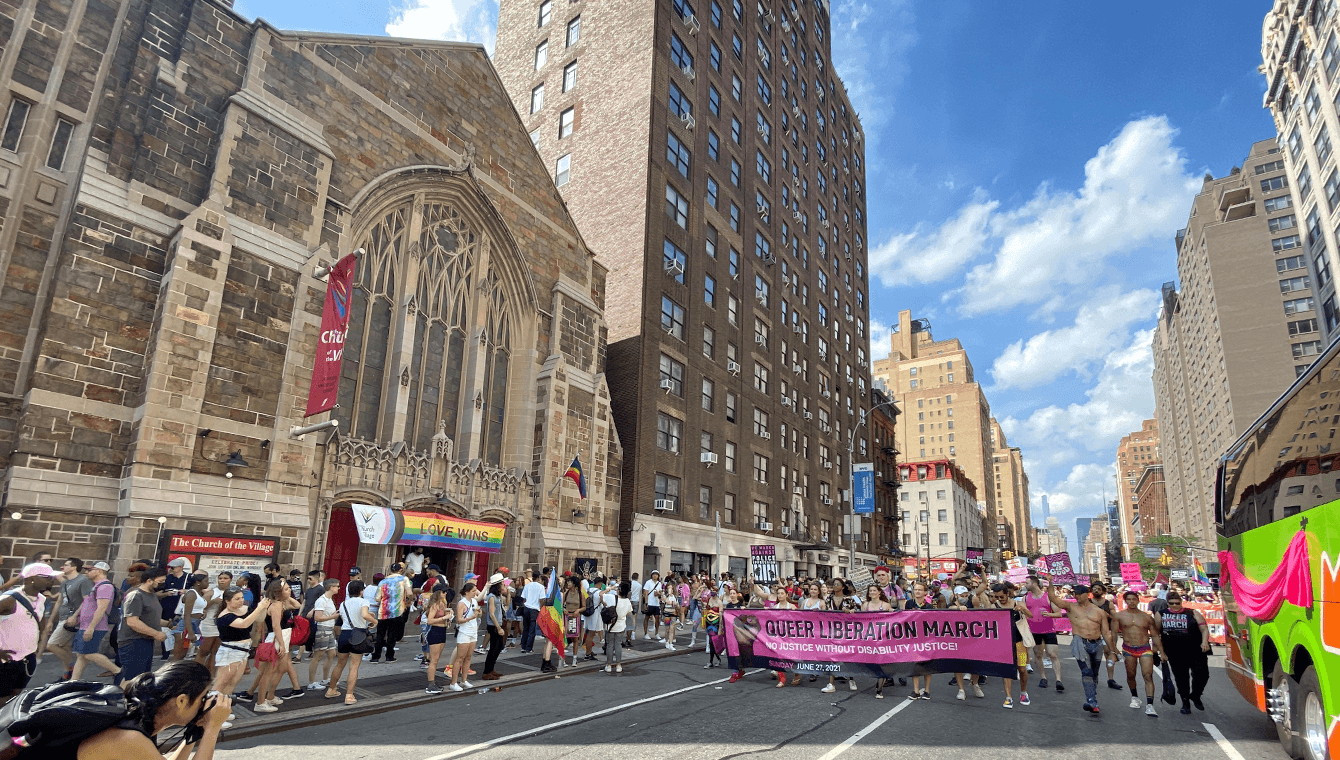
The final guiding principle comes via wisdom from Howard Thurman: “Don’t ask what the world needs. Ask what makes you come alive, and go do it. Because what the world needs is people who have come alive.”
For those who are willing to accept an invitation into new ways of being, prompted by the disruption of the pandemic, we must continue to move forward into the unknown.
We must be guided not by our former ways of doing things but by the new ways the Spirit is stirring within our souls — individually and collectively.
Our community has a rich history of innovation and openness to where the Spirit leads. We stand in a tradition of rabble rousers and justice seekers and people who love to ask, “Who are we missing, and what do they need?”
As we anticipate emerging from the pandemic, we have an opportunity to leverage a year of forced innovation to be church in a way that attracts people who really are done with religion.
What I’ve heard from those in the nones and dones demographic this past year is that they’re not even sure what they need — except to heal from past religious hurts and to take things slowly. And they keep coming back, because our community is a place where that feels possible.


